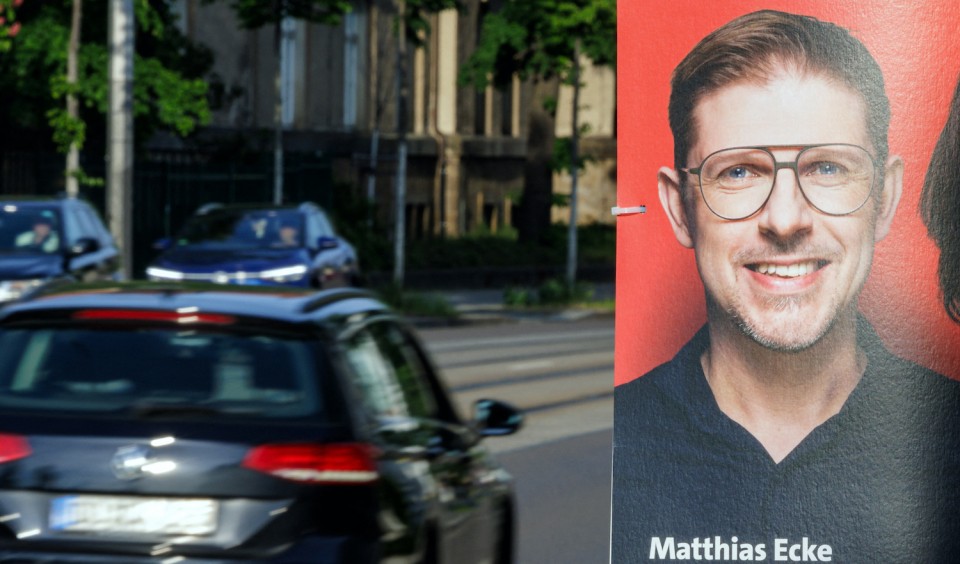
By Sam Reeves
FRANKFURT, Germany, May 6, 2024 (AFP) – Three more teenage suspects have been identified in relation to an attack in Germany on a European parliament lawmaker (MEP), authorities said Monday, after a 17-year-old turned himself in.
Matthias Ecke from Chancellor Olaf Scholz’s Social Democrats (SPD) was set upon by four attackers as he put up European election posters in the eastern city of Dresden on Friday night.
The 41-year-old needed an operation for serious injuries sustained in the attack, which was denounced by Scholz as a threat to democracy.
In a post on X, formerly Twitter, alongside a photo of his heavily bruised face, Ecke thanked supporters for their “sympathy and solidarity”.
“But this is not just about me, it is about everyone who is passionate about politics. In a democracy, no one should be afraid to express their opinion,” he wrote.
On Sunday the 17-year-old turned himself in to police in Dresden and said he carried out the attack.
Following further investigations, three other suspects were identified on Sunday, their homes were searched and evidence seized, according to a joint statement from the police and prosecutors in Dresden.
The suspects are Germans aged 17 and 18, the statement said, adding the investigation was ongoing.
The teen who turned himself in on Sunday is considered the main suspect in the attack, according to German daily Bild.
The motive remains unclear and the suspects have not been taken into custody.
Police and prosecutors said there are indications that one of the suspects could be classified as far right.
But they stressed the crime itself is not currently classified as being motivated by far-right beliefs as the investigation is still ongoing.
The far-right Alternative for Germany (AfD) has racked up a string of successes at local polls over the past 12 months but has also been at the centre of a series of scandals, including allegations of links to Russia and China.
Ecke, who is head of the SPD’s European election list in the Saxony region, suffered several fractures to his face in the attack, according to his party.
The operation on the politician, who remains in hospital, went smoothly but the recovery will be long, it said.
– Latest target –
Ecke was just the latest political target to be attacked in Germany.
Police said a 28-year-old man putting up posters for the Greens had been “punched” and “kicked” earlier in the evening on the same Dresden street.
Authorities suspect the same four people of carrying out the attack.
In the past two weeks, two Greens lawmakers were abused while campaigning in Essen in western Germany and another was surrounded by dozens of demonstrators in her car in the east of the country.
On Sunday, thousands of people attended demonstrations in solidarity with Ecke in Dresden and Berlin.
The issue of increasing political violence will feature at a special conference Tuesday involving Interior Minister Nancy Faeser and regional interior ministers, the government said.
“It is now urgently necessary to further increase the protection of democratic forces in our country,” an interior ministry spokesman told a press briefing in Berlin.
He said a stronger police presence and more protection for parties was needed in the run-up to June’s European elections, as well three key state elections in Germany later this year in which the AfD is forecast to perform strongly.
According to provisional police figures, 2,790 crimes were committed against politicians in Germany in 2023.
That was more that the 1,806 recorded the previous year but fewer than the 2,840 registered in 2021, when legislative elections took place.







